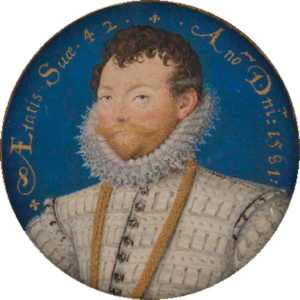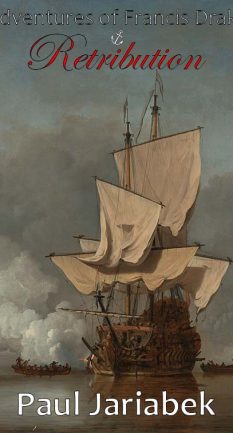Historical fiction allows us to experience the why.

What circumstances and conditions create someone like Sir Francis Drake? What motivates him to risk his life in faraway seas and lands? Was it ambition, lust for power and riches? Or was it personal hate and vengefulness against a foe?
In this heavily researched exploration, I try to fill in gaps and details while keeping history and technology as accurate as possible. I hope you enjoy the stories that attempt to breathe life into history, put passion into thoughts, and color the actions.
So, sign the muster book and climb aboard a 16th century armed merchantman. Feel the strain of the running rigging. Hear the wind snapping the sails and feel the heaving of the waves. Load and run out the guns and prepare the ship for action.
Discover… Drake.
Set in the tumultuous 1550s, the historical fiction novel Sic Parvis Magna is the coming-of-age story of Francis Drake—a farm boy before his notoriety as a swashbuckling pirate who spectacularly raided the Spanish Main, or his fame as a circumnavigator and bold admiral who “singed Phillip’s beard.”


Join the 17-year-old Francis Drake in a cutlass-slashing, canon-blasting sea raid as he assists his cousin John Hawkins in cutting out one of the Hawkins’ ships, rescuing its crew from French captivity, and learns something about himself during the Anglo-French war of 1557.
This series will trace Drake’s life through his death. Following the release of Sic Parvis Magna, I will resume working on First Blood and The Unfortunate Journey. There are also very rough sketches of two more full novels after First Blood and at least two more short stories.
Please be sure to subscribe to my updates so that I can let you know about the progress of the next installments.
The planned historical fiction short story The Unfortunate Journey will explore the disastrer at San Juan de Ulúa.
This novel will see the continuation of the adventure in Drake’s attack against Nombre De Dios, Panama, and the isthmus of Panama in the reign of Elizabeth I who cascends to the throne in 1558.
Copyright © 2022-2025 Paul Jariabek, All Rights Reserved
This website uses some cookies. Please see the Historical Fiction Books of Paul Jariabek Privacy Policy.